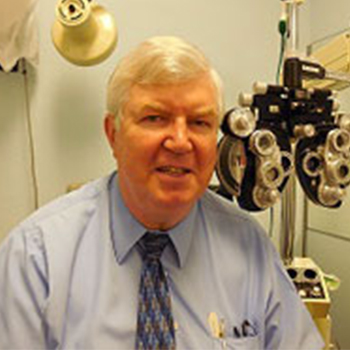Dry eye syndrome is a condition in which the eye does not produce enough tears, or the tears are too thin to lubricate and nourish the eye. Tears are necessary for maintaining the health of the front surface of the eye and for providing clear vision. Dry eye syndrome is a common and often chronic problem, particularly in older adults.
Tears provide lubrication and reduce the risk of eye infection. They wash away foreign matter in the eye as well as keep the surface of the eye smooth and clear. With each blink of the eyelids, tears are spread across the front surface of the eye known as the cornea. Excess tears in the eyes flow into small drainage ducts in the inner corners of the eyelids, which drain in the back of the nose.
When our eyes are not properly lubricated, our vision and comfort can suffer greatly. Thankfully, there are treatments and alternatives to help address the problem.
Causes & Symptoms of Dry Eye
Dry eye can result from an improper balance of tear production and drainage. Advanced dry eyes may even damage the front surface of the eye and impair vision. Elderly people frequently experience dry eye, but it can happen to anyone. Medications, other diseases, obstructions of glands, hormone changes, and many various medical situations can create dry eye symptoms.
People with dry eye syndrome may experience:
- Irritated, scratchy, gritty or burning eyes
- A feeling of something in their eyes
- Excess watering
- Blurred vision
Treatment of Dry Eye
While dry eye can be a chronic condition, Dr. James Anderson can prescribe treatment. This will keep your eyes healthy, more comfortable, and prevent your vision from being affected. Specific treatments aim to restore or maintain the normal amount of tears in the eye to minimize dryness or related discomfort and to maintain eye health.
To learn more about this condition, watch the video below. Please contact our office to schedule an appointment with us if you are experiencing any discomfort in your eyes, or if you feel that you have insufficient eye moisture.


